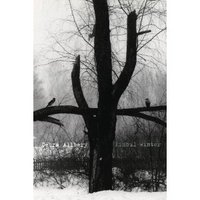Quiet loss runs through Fimbul-Winter

Fimbul-Winter by Debra Allbery. Published by Four Way Books.
Fimbul-Winter is a term from Norse mythology meaning "long winter." It is also the newest book of poetry by Debra Allbery. The opening pages contain a quote from Robert Walser, "To forgo something, that also has its fragrance and its power." That sets the tone for the poems that follow, many of which contain pieces of quiet, almost oppressive, solitude as the narrators convey their thoughts after a moment, or a life, has gone.
As a whole, the book leaves the reader with both the feeling and image of desolation. This is encapsulated in In How To Explain Pictures To A Dead Hare, "This is a map of the ruined city, a shaft of lightning in the pine. Blood sky, foxed twilight, the trees sound like waiting."
The book is populated with narrators whose interior lives are not frozen, unlike their external surroundings, but are numbed by a coldness that remains after life as passed through them. Allbery writes in After Vermeer, "The closer I come to my confinement, the more I shawl my past around me." And in Clear Mirror Lament, "how could farewell go so long and so far...."
In addition, there are themes of isolation, which, in an abstract way, add to the sense of cold. In The Woman's Lament, she writes, "I was left to my own course, exiled and friendless within my own house." And in Short Story, "Now, miles and years away, not much remains. Divorce, remarriage - a woman who, thank God, doesn't listen, leaves me alone."
And, of course, pervasive throughout the book is the constant reiteration of the gray, freezing world which surrounds the narrators. In No Tutor But The North, she writes, "Ice-skinned footprints flinting under my step. Blink of snowflakes on my sleeve." Other passages in poems include, "clouded brow of the upper Midwest," "the blue-black wince of the lake glinting all around" and "the gray hum of the skyward".
There are occasionally moments when the outside world intrudes itself on the narrator or reader. These come so sparingly it is almost a shock when they occur. In Constellation, the narrator states, "Today on the interstate I saw a man lying on his back in front of his parked car there on the graveled shoulder of the highway.... He lay there as if he were in some meadow or park, his head only inches away from his front tire - just below his license plate that said BEGIN." The awareness of looking forward, noted in this passage is contrary to much of the book, given the overriding sentiments of loss. In fact, the lines above are within a poem that is a letter to someone who is far, and perhaps long gone.
It is not so much the stories conveyed that carry the reader along, but the mood. I felt less as though I'd read a book and more that I had viewed a painting. As Allbery carries words, phrases, and themes throughout, by the end I could easily imagine the gray sky, the partially frozen river, the pines and the solitary individual wandering among it all.
Julia Eussen received her B.A. in English from Kansas State University. She is currently a graduate student in Eastern Michigan University's Professional Writing Program. She is also an active member of the Ann Arbor Classics Book Group and has recently begun to re-acquaint herself with good poetry. She can be reached at jeussen at emich dot com.

